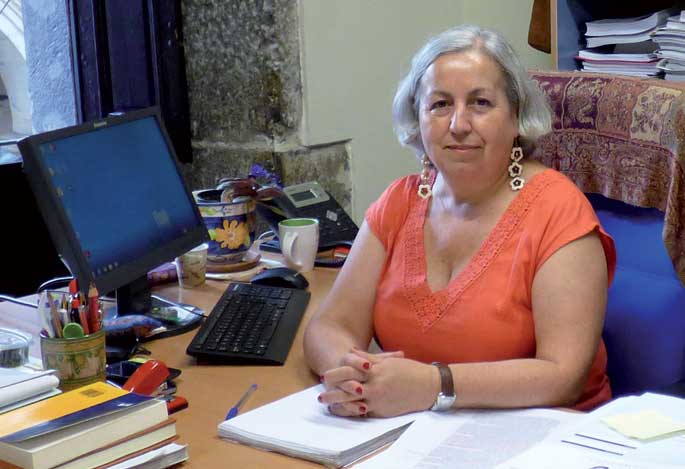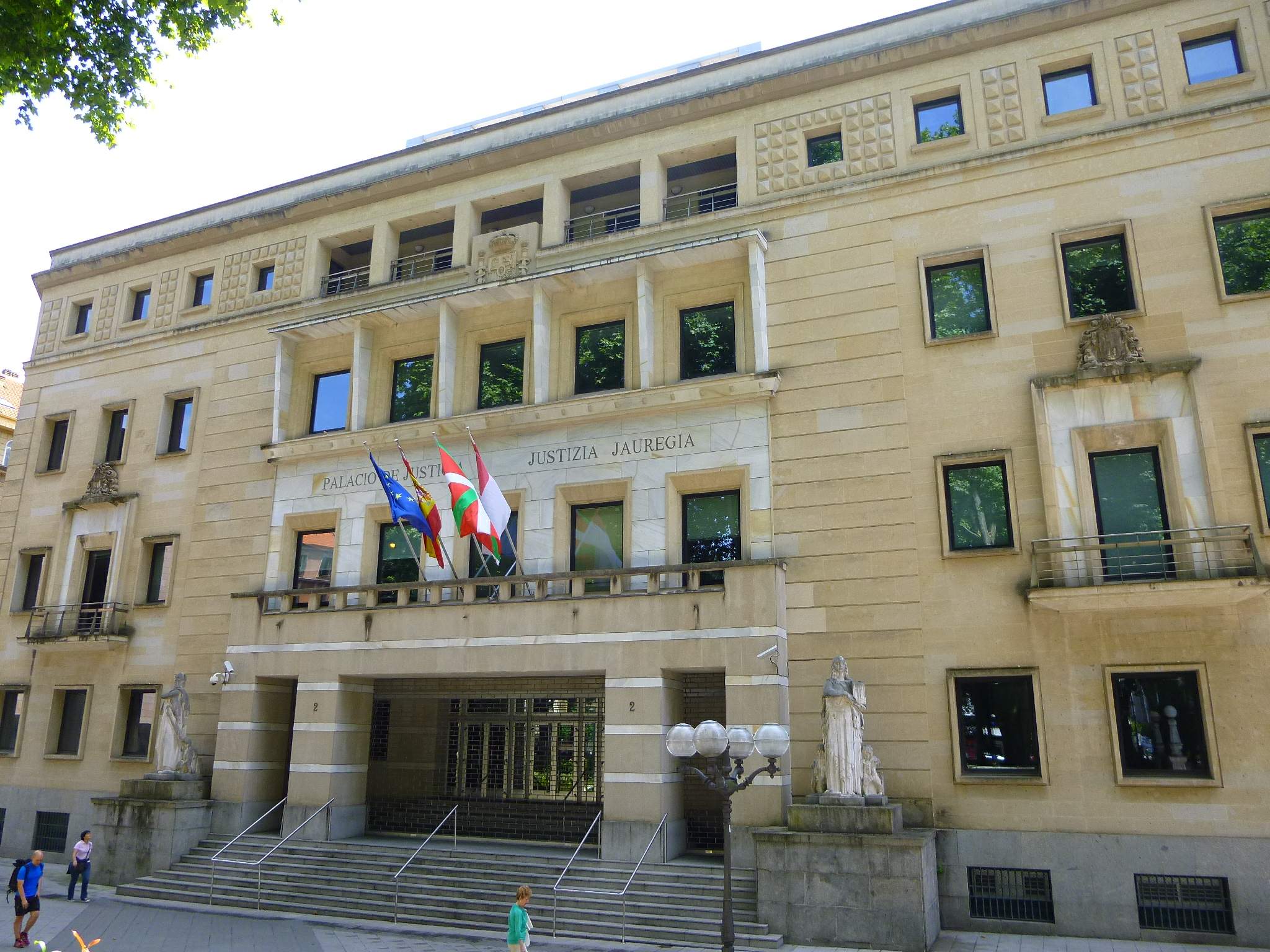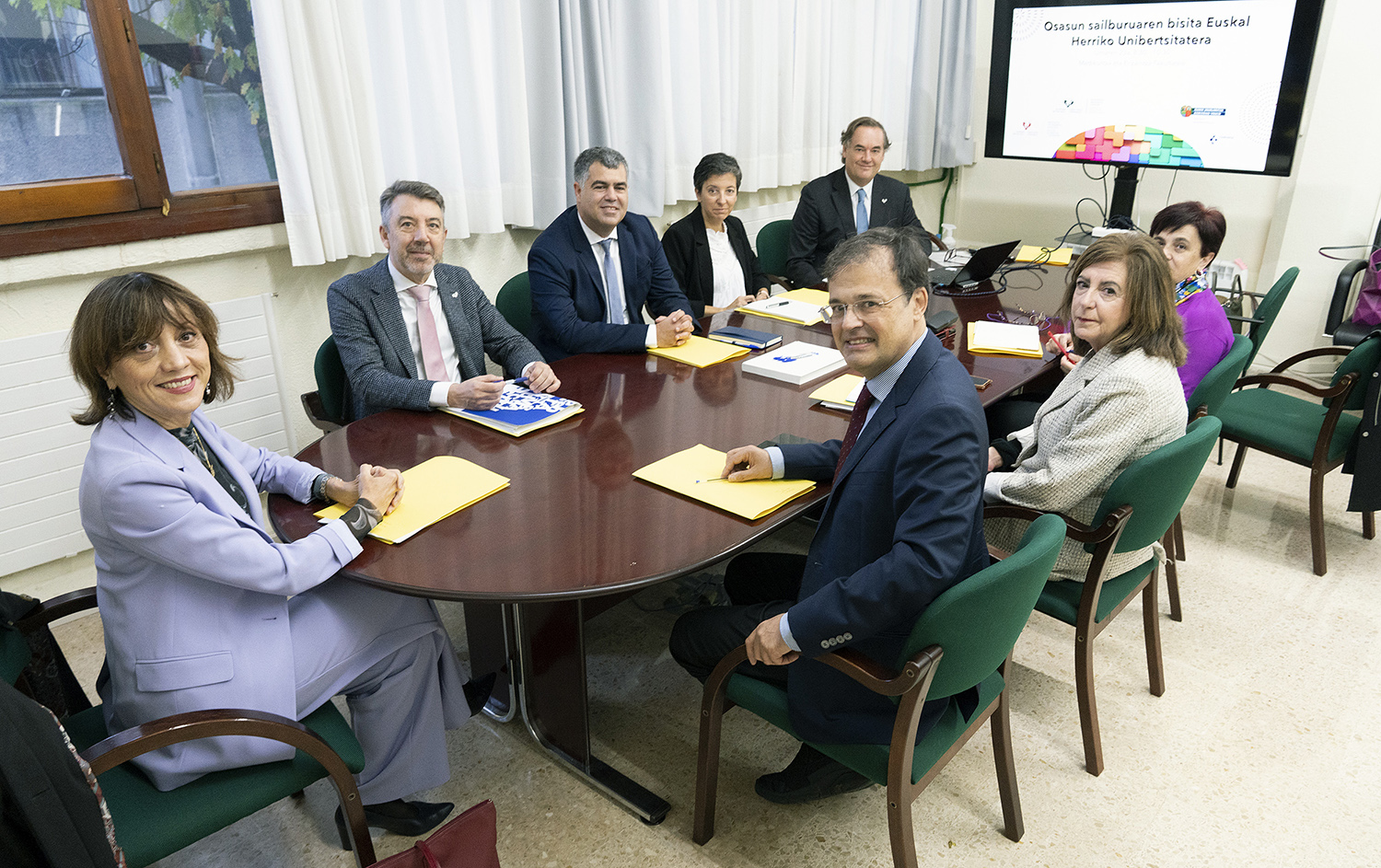"Should all dossiers be written in both languages?"
- Begoña Garmendia was Executive Secretary of the City of Errezil from 1988 to 1997; from then until 2006, Secretary of the City of Usurbil. He is currently secretary of the Azkoitia City Hall. You have seen how languages are managed in the internal activity of the City Hall. It says that legal loopholes must be sought to try to act in Basque.

At the Azkoitia City Hall, have you received the visit of the Spanish Government delegate to the CAV, Carlos Urquijo?
At the time he opposed the contracting criteria approved by the City Council. We analyzed it together with the Basque leadership of the Provincial Council of Bizkaia and, given the possibility that the Superior Court of Justice of the Autonomous Community would suspend it, we decided to reverse it. Now, unlike what happened before, we looked at each of the recruitment dossiers in which we introduced the linguistic criterion. The matter ended like this.
He has worked in Errezil, Usurbil and Azkoitia. What conclusions did you draw with regard to linguistic management?
It's a difficult question ... The most important thing for me is to take into account what the general framework says. On the one hand, it says that citizens have the right to choose language in their relations with the administration, and on the other hand, that the administration has an obligation to respect the right of citizens.
The question is how this all relates to the normalization of the Basque country. The Basque Law says that the administration has to act in both languages, so what does it mean that all dossiers must be carried out in both languages? I believe that we must go beyond mechanical bilingualism, because otherwise, Castilian is imposed, without a remedy.
You mentioned the Basque Law.
Despite the advance of its time, the legal framework is very small and obsolete, it is not able to advance the process of normalization of Euskera in municipal administrations. I am referring above all to the Basque Law. At the moment it is one of the biggest obstacles for municipalities that want to function in Euskera, or for those who want to move forward in the process of normalization of Euskera.
What's the choice?
Of course, change the Basque Law.
What about the Municipal Law?
The right of citizens to choose the language and the duty of the administration. Are they the ones who have to make the processing of all dossiers conditional? The consequence is that the dossiers are completed only in Spanish, or at most in bilingual. The question is what we do to take steps in the normalization of the Basque Country, for example, to process the dossiers only in Basque, or when the citizens choose to use Spanish, to do the parts of those dossiers (internal reports, trades...) in Basque.
What does it mean that, according to this framework, municipalities tend to make their complete dossiers in Spanish?
More than a trend. As someone can request or has requested part of the dossier in Spanish, from the beginning we will do everything in Spanish. It doesn't have to. The citizen can make his request in Spanish, the answer will be given in Spanish, it will require that he wants a part of the complete file... but everything else can be kept in Basque.
The Municipal Law can allow it. I do not know why he makes special mention of the minutes, why he does not make a more extensive reference, why the other dossiers do not take them into account.
You say you have to be brave.
Brave, but not carefree. In any case, most of the time we have confined ourselves to the literal interpretation of the law. The Basque Law says you have to do it in bilingual, so everything will be done in bilingual. We have to end with two columns if we want to achieve the normalized use of Euskera in our municipalities. When I say daring, I should like to say that we have to look at the possibilities that exist, not forgetting the reality of each municipality. I believe that those of us who work in local councils should ask ourselves: What can I do in my day to day? I'm sure we would do new things.
Are there slots?
Yes. I said it at the conference of Udaltop [Lasarte-Oria, 29-30 April], the dossiers are the basis of the activity of the municipalities and we have to analyze them. Types, people who are headed, who are starting them, etc. Once classified, we should decide how to act with each of them.
Are municipalities doing so?
Every city council does what it can. More general work should be done. It is the responsibility of the Members of Parliament to cooperate with the municipalities. Why not advise on this issue? It is very difficult for every city council to do so.
You claim to use the loopholes of the laws, but you will not deny that there are limits.
Yes. I mentioned the Basque Law. In fact, we could say that at the level of file management, the state law of 92 is broader than that. It says that when it comes to dealing with the dossiers, it will be subject to autonomous legislation. What happens? The first obstacle is the Basque Law.
Something else about the Municipal Law?
We still have problems that have not been solved. The law has not been used for this purpose. For example, the judgment given on the subject of minutes in the case of the City of Irura is exemplary. The judge clearly says that the holders of language rights are citizens, not administrations. In the event that an administration based in the CAV informs a city council to send the documentation in Spanish, the ruling states that said administration does not have the right to request the translation of the Basque. The Administration should be trained in both languages. It is therefore not entitled to request a translation.
Do you also put notaries in that bag?
They are public-private entities. They have to respect the local language and they cannot force us to translate.
Are you judged the same thing?
Of course. At the moment, the official status of the Basque Country is not being respected in the dossiers that are being asked of the municipalities.
I guess it will always have been that way, right?
No, we have taken a step back. I remember when I was in Errezil and Usurbil, we sent the dossier in Basque to the court as it was, and the court had the team of translators from the Basque Government to make the translations if necessary. There is no doubt that the Government has competence. At the moment this obligation has been imposed on the municipalities. I recently had a dossier of almost 1,000 pages and we had to return everything when sending it to the court. So how can we guarantee the standardized use of Euskera in municipal records?
Has any law changed?
The High Court of Justice of the Basque Country has changed the general criterion and imposed an obligation on us to return them. It has been based on existing legislation, saying that we have to do it in bilingual. In this case, however, we must stress the responsibility of the Basque Government, which has the responsibility of providing resources in the courts.
Gasteizko 1 zenbakiko Auzitegi Kontentzioso-Administratiboak emandako epaia berretsi du EAEko Justizia Auzitegi Nagusiak. Lan poltsan parte hartzeko euskara maila altuenaren baliokide diren 3. eta 4. eskakizunak indargabetu zituen Gasteizko Auzitegiak.
In recent months I have had to work in a number of institutes and, at some point, I have had to talk to the students about the possibilities offered by the labour market. The typology of the students is varied and in the same city varies a lot from one neighborhood to another,... [+]
Languages Lan has just organised the first international conference on linguistic management in Bilbao. Much has been said in the Congress about language policy, management and tools. And emotions. And from emotions, how many cooperatives, companies and organizations in our... [+]
Few spend their whole lives at the same work. What was common at the time of our parents, today, is absolutely unusual. It seems that millennial generation youth will not spend five years in the same job and the time will be much shorter between Z and Alpha generations.
I too,... [+]










.jpg)







